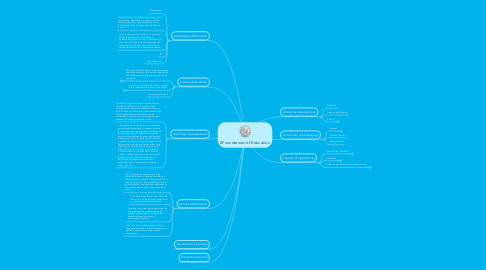2Foundations of Education
by Sara Lauderdale


1. philosophy of Education
1.1. Existentialism
1.2. General Notions- individuals are placed on this world alone. People must make since of the chaos around them. Key researchers: Jean Paule Sartre Maxine Greene Maurice Merleau- Ponty
1.3. Goal of education- Education is an individual activity that should be personalized to students. Role of the teacher- teachers should have lived a life outside of the classroom that they bring into the classroom to help guide students on their on own personal adventures.
1.4. h9
1.5. Supporting Staff
2. politics of education
2.1. The 4 purposes of education are 1 the intellectual transfer of specific knowledge 2 the socialization of youth 3 the preparation of youth for economic and occupational roles 4 political intellect and patriotism transferred to the next generation to continue the political order
2.2. The Liberal perspective 1 the role of the school is to create an even playing field for students of all baackgrounds
2.3. 2 explanations of unequal performance the liberal perspective is explained by the unequal expenditures on students and education based off students socioeconomic status
2.4. 3 the definition of educational problems in progressivism often is found at differences in students' socioeconomic and cultural backgrounds.
3. schools as organizations
3.1. Definition
3.2. Items to be Delivered
3.3. Extent
3.3.1. Included
3.3.2. Included
3.3.3. Excluded
4. history of education
4.1. The most influential reform in schools was the rise of the common school which allowed the rise of education for the larger portion of the population
4.1.1. Project specifications
4.1.2. End User requirements
4.1.3. Action points sign-off
4.2. the democratic liberal school is an ideal to reform education to include more people
4.2.1. Define actions as necessary
4.3. Development Stage 2
5. sociological perspectives
5.1. functionalist: approach education with the idea that the world functions as a machine that needs to have more parts added to continue to work Conflict: see schools as social battle fiends with struggles between all levels of power interactional: exist mainly as a critique of other theories and looking at the big picture.
5.2. 1. Education and mobillity the more students have a steady foundation of education allows for social and economic mobility of individuals to better themselves.2 Defacto segregation creates a greater divide between students and their peers as well as solidify social standings in present and future culture. 3. Education and Inequality help students understand that social mobility is an option but also have a greater understanding of the current social structure. 4. Teacher behavior greatly affects students' thoughts of themselves and other students. 5. Student peer groups and alienation allow students to be properly socialized and understand how to interact with others who are not like them.
6. curriculium of pedeagogy
6.1. Budget
6.1.1. Materials
6.1.2. Personel
6.1.3. Services
6.1.4. Duration
6.2. Delivery Timeline
6.3. Requirements
7. equality of opportunity
7.1. Define Project Schedule
7.1.1. Dependencies
7.1.2. Milestones
7.2. Limitations
7.2.1. Schedule
7.2.2. Budget
7.3. Define Project Development Measurement
7.3.1. KPI's
